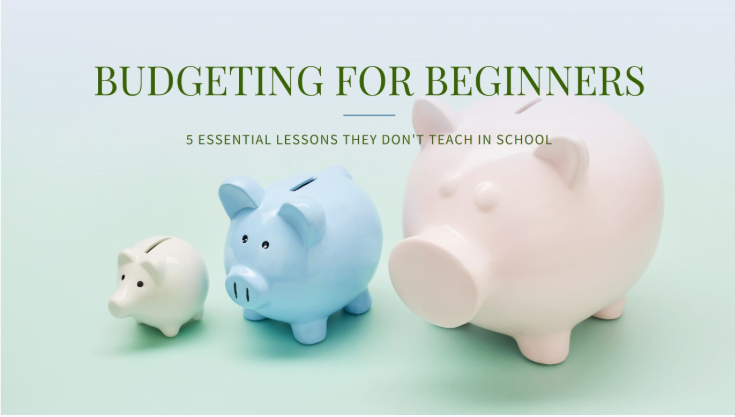Are you prepared for Financial Freedom
Budgeting for Beginners: 5 essential lesson they don't teach in school


As we navigate the complexities of adulthood, it's surprising how little we're taught about managing our finances. We spend years learning algebra, history, and literature, but the basics of budgeting are often left out of the curriculum. This glaring omission leaves many of us struggling with our finances and wondering why we can't seem to get ahead.
It's time to fill in the gaps and take control of our financial futures. In this article, we'll explore the 5 essential lessons you need to know to master the basics of budgeting and achieve financial freedom.
Lesson 1: Track Your Expenses
Before you can create a budget, you need to understand where your money is going. For one month, write down every single transaction you make, including small purchases like coffee or snacks. This will help you identify areas where you can cut back and make adjustments.
Use a budgeting app like Mint or Personal Capital to make tracking easier
Categorize your expenses into needs (housing, food, utilities) and wants (entertainment, hobbies)
Identify areas where you can cut back and allocate that money towards savings or debt repayment
Lesson 2: Create a Budget Plan
Now that you have a clear picture of your expenses, it's time to create a budget plan. Allocate your income into categories based on your needs and wants. Make sure to include a category for savings and debt repayment.
Use the 50/30/20 rule as a guideline: 50% for needs, 30% for wants, and 20% for savings and debt repayment
Prioritize your needs over your wants
Review and adjust your budget plan regularly to ensure you're on track
Lesson 3: Prioritize Needs Over Wants
It's easy to get caught up in the latest trends or gadgets, but it's essential to prioritize your needs over your wants. Remember, needs are essential expenses that you can't live without, while wants are discretionary expenses that can be curbed.
Be honest with yourself about what you need versus what you want
Cut down on unnecessary expenses like dining out or subscription services
Allocate that money towards savings, debt repayment, or essential expenses
Lesson 4: Manage Debt Effectively
Focus on paying off high-interest debt first, and consider consolidating debt into a lower-interest loan.
Create a debt repayment plan and stick to it
Prioritize high-interest debt over low-interest debt
Consider debt consolidation or balance transfer options
Lesson 5: Build an Emergency Fund
Life is unpredictable, and unexpected expenses can arise at any moment. Building an emergency fund can provide a safety net and help you avoid going into debt.
Aim to save 3-6 months' worth of living expenses
Keep your emergency fund separate from your regular savings
Review and adjust your emergency fund regularly to ensure it's adequate
Mastering the basics of budgeting is the first step towards achieving financial freedom. By tracking your expenses, creating a budget plan, prioritizing needs over wants, managing debt effectively, and building an emergency fund, you'll be well on your way to taking control of your financial future.
Remember, budgeting is not a one-time task; it's an ongoing process that requires regular review and adjustment. By staying committed and patient, you'll be able to achieve your financial goals and enjoy the peace of mind that comes with financial freedom.
Registration Granted By SEBI (INA000020208), Membership Of BASL (BASL2266), And Certification From NISM In No Way Guarantee Performance Of The Intermediary Or Provide Any Assurance Of Returns To Investors. Investment In Securities Market Are Subject To Market Risks. Read All The Related Documents Carefully Before Investing. We are Fee Only Advisers. We prioritize customer over commission.
Copyright © 2025 Neha Sinha - All Rights Reserved.
